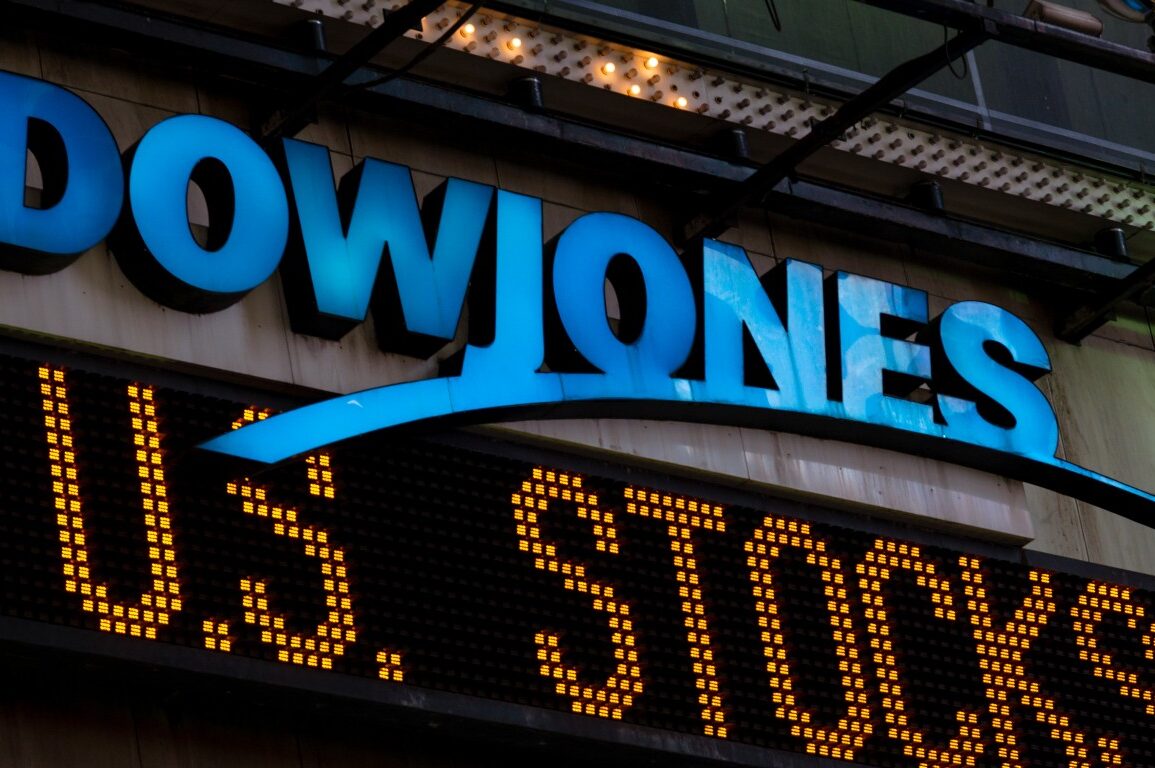Investing
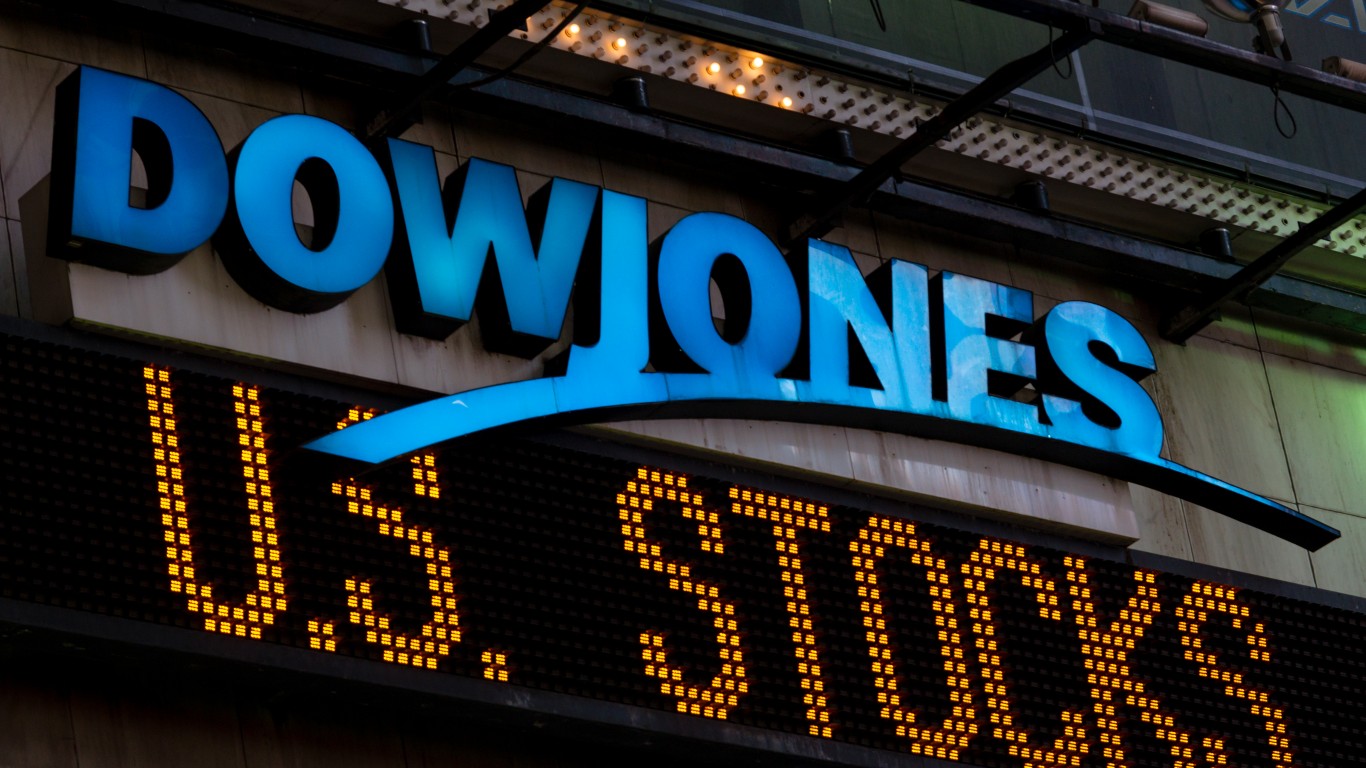
The Dow Jones industrial average (DJIA) is a price-weighted average of 30 blue-chip U.S. stocks, often industry leaders. It is the oldest U.S. market index, dating back over 100 years, and has been a widely followed stock market indicator since 1928. The DJIA is considered the world’s most recognizable stock indicator and is the only index comprised of companies that have consistently performed well over an extended period. So far in 2025, the DJIA is up 5.1%, almost double the S&P 500.
-
While the Dow Jones industrials had a solid 2024, the return was half of the S&P 500.
-
The conservative large-cap giants in the DJIA are ideal for growth and income investors.
-
With the overall stock market very overbought, the highest-yielding Dogs of the Dow make sense now.
-
Do you have a spot in your portfolio for DJIA dividend leaders? Why not meet with a qualified financial advisor near you and find out? Click here to get started today. (Sponsored)
The Dogs of the Dow is a well-known strategy first published in 1991 by Michael Higgins. The plan seeks to maximize the yield of investments by buying the 10 highest-paying dividend stocks available from the DJIA each year. The highest-yielding stocks are also the lowest-priced stocks in the venerable average, as the lower a stock (or bond) goes in price, the higher the attached yield or coupon becomes. The four highest-yielding Dogs look like outstanding ideas now. All are Buy-rated at top Wall Street firms.
Why do we cover the Dogs of the Dow?

Since the turn of the century, the Dogs of the Dow have significantly outperformed the overall Dow Jones industrials and the Small Dogs of the Dow, which are the five highest-yielding stocks, even more. The fact that investors are buying the highest-yielding companies in the venerable index improves the chances for total return gains.
Verizon
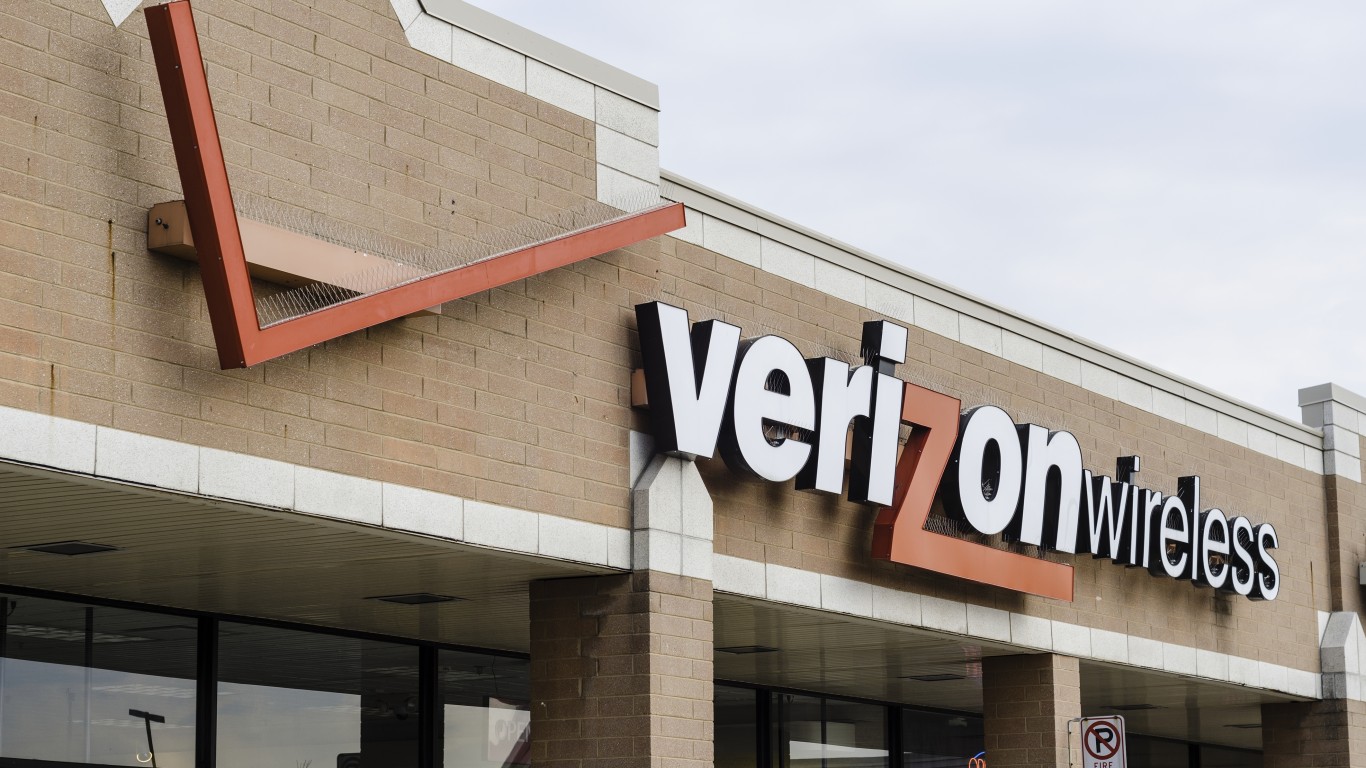
This top telecommunications company offers tremendous value, trading at 8.75 times estimated 2025 earnings and paying investors a strong 6.92% dividend. Verizon Communications Inc. (NYSE: VZ) provides communications, technology, information, and entertainment products and services to consumers, businesses, and governmental entities worldwide through two segments.
The Consumer segment provides wireless services across the wireless networks in the United States under the Verizon and TracFone brands and through wholesale and other arrangements.
It also provides fixed wireless access (FWA) broadband through its wireless networks and related equipment and devices, such as:
- Smartphones
- Tablets
- Smartwatches and other wireless-enabled connected devices
The segment also offers wireline services in Mid-Atlantic, including the District of Columbia, and Northeastern United States through its fiber-optic network, Verizon Fios product portfolio, and a copper-based network.
The Business segment provides wireless and wireline communications services and products, including:
- FWA broadband
- Data
- Video and conferencing
- Corporate networking
- Security and managed network
- Local and long-distance voice
Network access services to deliver various IoT services and products to businesses, government customers, and wireless and wireline carriers in the United States and internationally.
Chevron
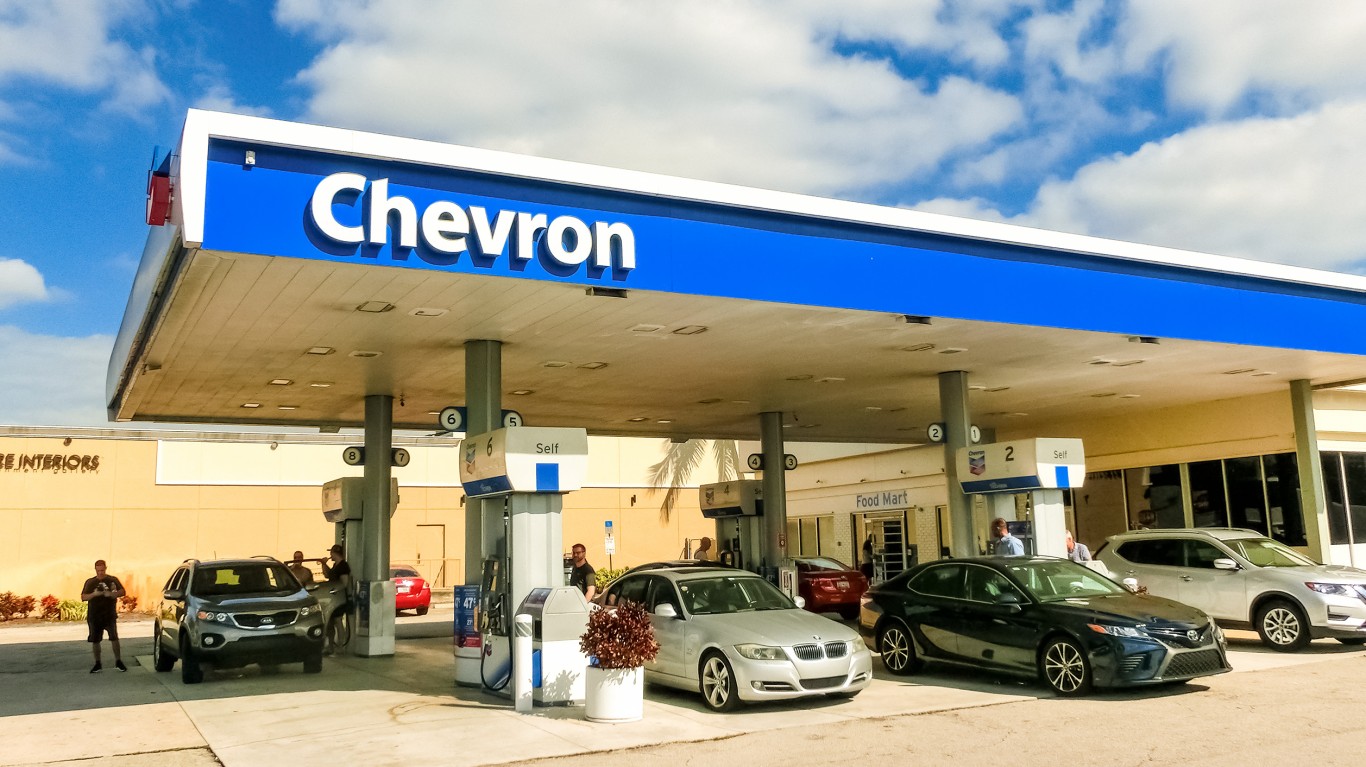
This integrated giant is a safer option for investors looking to position themselves in the energy sector. It has a sweet 4.20% dividend. Chevron Corp. (NYSE: CVX) engages in integrated energy and chemicals operations worldwide through its subsidiaries. It operates in two segments.
The Upstream segment is involved in the following:
- Exploration, development, production, and transportation of crude oil and natural gas
- Processing, liquefaction, transportation, and regasification associated with liquefied natural gas
- Transportation of crude oil through pipelines; and transportation, storage
- Marketing of natural gas, as well as operating a gas-to-liquids plant
The Downstream segment engages in:
- Refining crude oil into petroleum products
- Marketing crude oil, refined products, and lubricants
- Manufacturing and marketing renewable fuels
- Transporting crude oil and refined products by pipeline, marine vessel, motor equipment, and rail car
- Manufacturing and marketing of commodity petrochemicals, plastics for industrial uses, and fuel and lubricant additives
It also involves cash management, debt financing, insurance operations, real estate, and technology businesses.
Chevron announced in the fall of 2023 that it has entered into a definitive agreement to acquire all of the outstanding shares of Hess Corp. (NYSE: HES) in an all-stock transaction valued at $53 billion, or $171 per share based on Chevron’s closing price on October 20, 2023. Under the terms of the agreement, Hess shareholders will receive 1.0250 shares of Chevron for each Hess share. The transaction’s total enterprise value, including debt, is $60 billion. It should finally close this summer.
Amgen
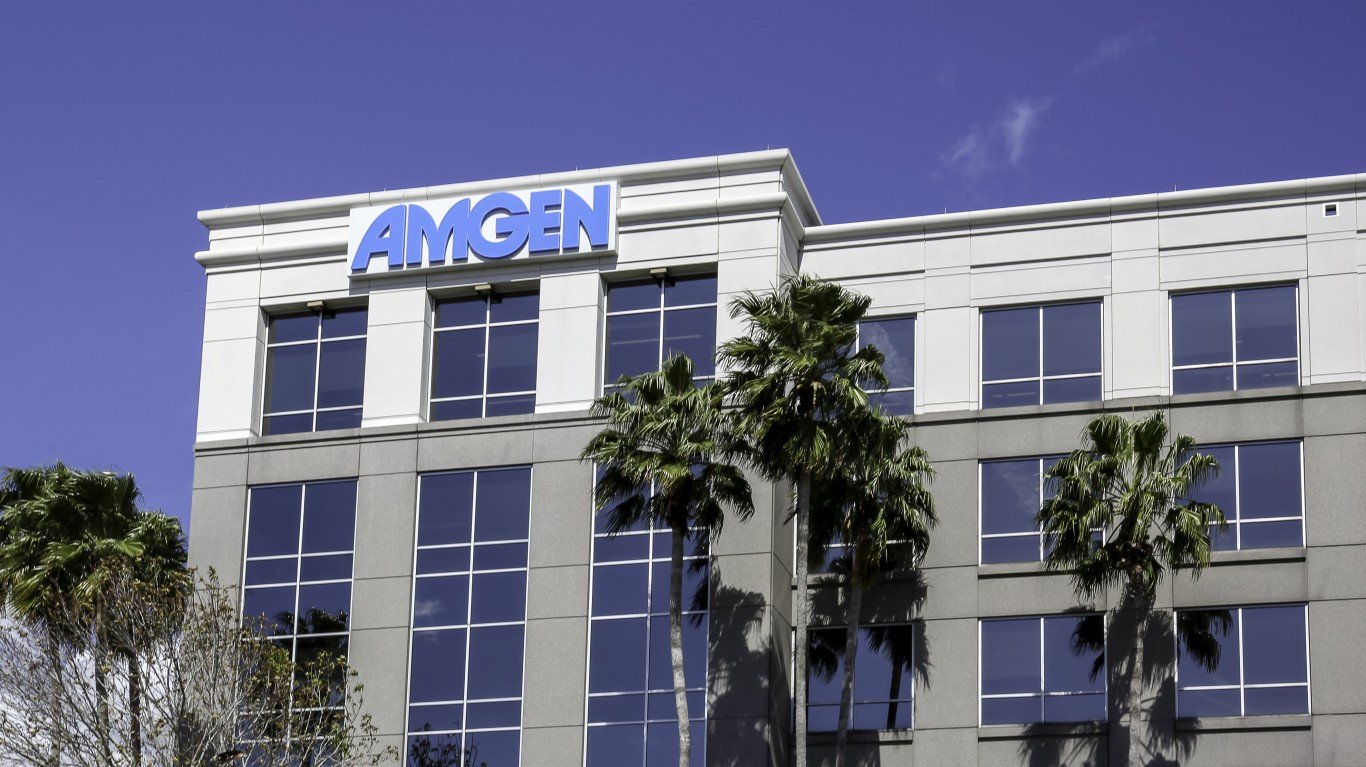
This biotech giant remains a top stock for investors to buy and a safer way to play the massive potential growth in biosimilars while paying a solid 3.38% dividend. Amgen Inc. (NASDAQ: AMGN) discovers, develops, manufactures, and delivers human therapeutics worldwide.
Amgen focuses on:
- Inflammation
- Oncology/hematology
- Bone health
- Cardiovascular disease
- Nephrology
- Neuroscience
The company’s products include:
- Enbrel to treat plaque psoriasis, rheumatoid arthritis, and psoriatic arthritis
- Neulasta reduces the chance of infection due to a low white blood cell count in patients with cancer
- Prolia to treat postmenopausal women with osteoporosis
- Xgeva for skeletal-related events prevention
- Otezla for the treatment of adult patients with plaque psoriasis, psoriatic arthritis, and oral ulcers associated with Behcet’s disease
- Aranesp to treat a lower-than-normal number of red blood cells and anemia
- Kyprolis to treat patients with relapsed or refractory multiple myeloma
- Repatha reduces the risks of myocardial infarction, stroke, and coronary revascularization
Merck
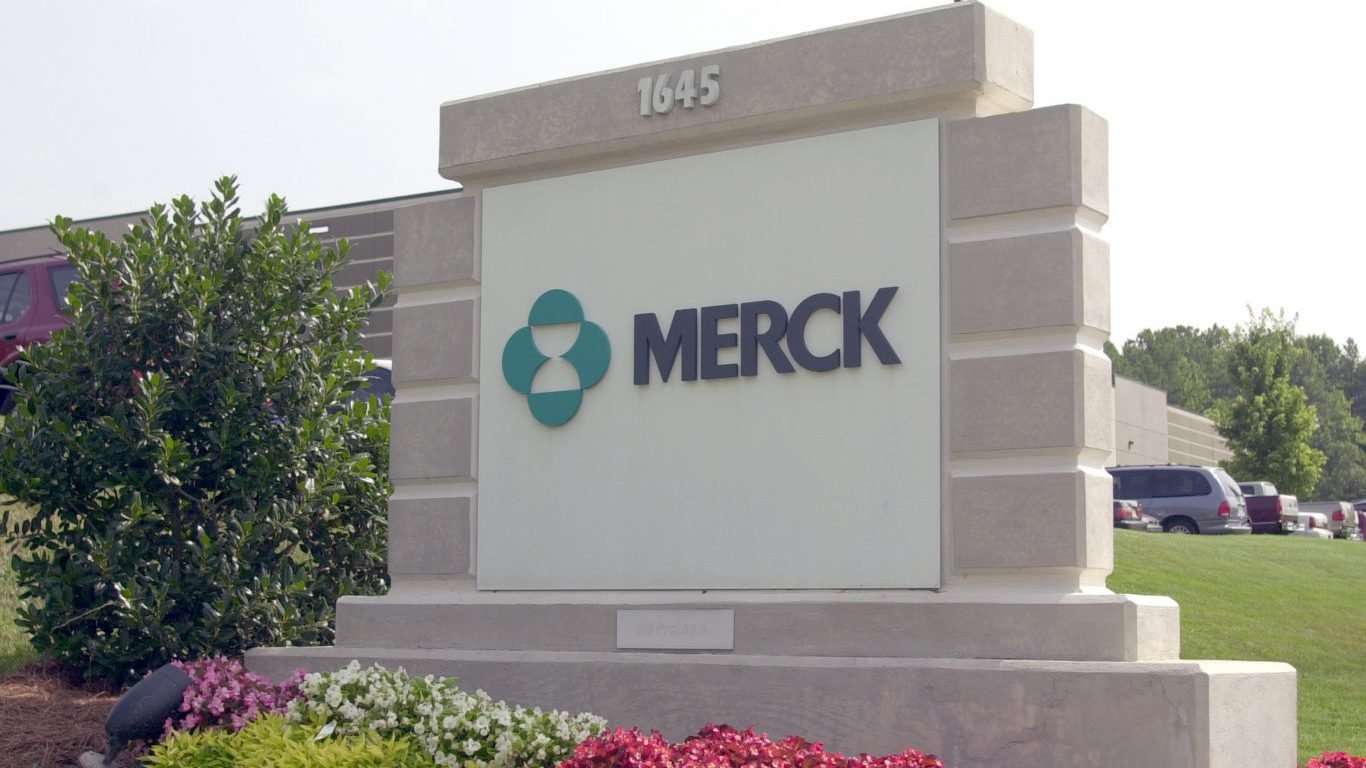
Not just a healthcare company, Merck & Co. Inc. (NYSE: MRK) is also a global force in the industry while paying a solid 3.20% dividend. The company operates through two segments.
The Pharmaceutical segment offers human health pharmaceutical products in:
- Oncology
- Hospital acute care
- Immunology
- Neuroscience
- Virology
- Cardiovascular
- Diabetes
- Vaccine products, such as preventive pediatric, adolescent, and adult vaccines
The Animal Health segment discovers, develops, manufactures, and markets veterinary pharmaceuticals, vaccines, health management solutions and services, and digitally connected identification, traceability, and monitoring products.
Merck serves:
- Drug wholesalers
- Retailers
- Hospitals
- Government agencies
- Managed healthcare providers, such as health maintenance organizations
- Pharmacy benefit managers and other institutions
- Physicians
- Physician distributors
- Veterinarians
- Animal producers
Merck’s growth is a result of its efforts and strategic collaborations. The company works with AstraZeneca, Bayer, Eisai, Ridgeback Biotherapeutics, and Gilead Sciences to jointly develop and commercialize long-acting treatments for HIV, demonstrating a commitment to innovation and growth.
Jefferies Says Buy Large Cap High-Yield Dividend Energy Giants Hand-Over-Fist
Get Ready To Retire (Sponsored)
Start by taking a quick retirement quiz from SmartAsset that will match you with up to 3 financial advisors that serve your area and beyond in 5 minutes, or less.
Each advisor has been vetted by SmartAsset and is held to a fiduciary standard to act in your best interests.
Here’s how it works:
1. Answer SmartAsset advisor match quiz
2. Review your pre-screened matches at your leisure. Check out the advisors’ profiles.
3. Speak with advisors at no cost to you. Have an introductory call on the phone or introduction in person and choose whom to work with in the future
Thank you for reading! Have some feedback for us?
Contact the 24/7 Wall St. editorial team.
This post was originally published on this site be sure to check out more of their content.



